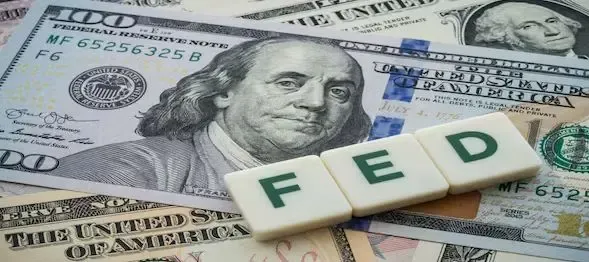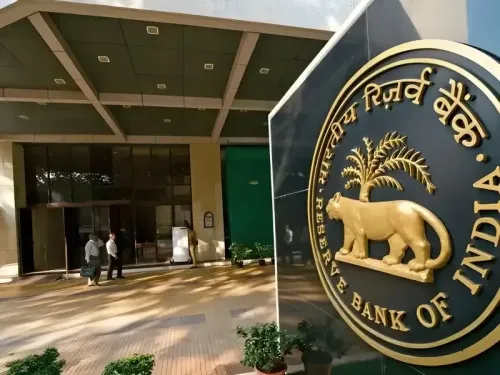Korean Stock Market Experiences Over 1% Decline Amid US Monetary Policy Doubts

Seoul, Dec 20 (NationPress) Shares in Seoul experienced a decline exceeding 1 percent on Friday, fueled by apprehensions regarding a slower monetary easing pace in the United States, along with the repercussions of President Yoon Suk Yeol's brief declaration of martial law this month.
The Korean won continued to linger around 1,450 won per U.S. dollar for two consecutive sessions, marking its lowest point in 15 years.
The benchmark Korea Composite Stock Price Index (KOSPI) plummeted 31.78 points, or 1.3 percent, closing at 2,404.15. At one point during the session, it dipped below the 2,400 level, according to reports from Yonhap news agency.
Trading volume was moderate, with 606.4 million shares valued at 9.12 trillion won (approximately US$6.28 billion) changing hands, as decliners outnumbered gainers by 703 to 204.
Foreign and institutional investors offloaded local shares worth 817 billion won and 89.1 billion won, respectively, while retail investors purchased a net 790 billion won.
Earlier this week, U.S. Federal Reserve Chair Jerome Powell indicated two additional rate cuts may occur next year, a reduction from the earlier projection of three cuts made three months ago.
"The stock market is facing increasing volatility amid uncertainties surrounding U.S. monetary policy," stated Kim Ji-won, an analyst at KB Securities. "The sentiment towards risky assets is likely to stay depressed for the time being.
In Seoul, major tech player Samsung Electronics dipped 0.19 percent to 53,100 won, while the second-largest chipmaker SK hynix fell 3.71 percent to 168,500 won.
Financial stocks also took a hit, with KB Financial declining 1.27 percent to 85,800 won and Shinhan Financial decreasing 1.23 percent to 48,250 won.
Leading pharmaceutical company Samsung Biologics slid 1.98 percent to 939,000 won, while Celltrion inched up 0.05 percent to 192,500 won.
The U.S. dollar remained strong following a better-than-expected economic growth rate of 3.1 percent for the third quarter, surpassing the previous estimate of 2.8 percent.
Bond prices, which typically move inversely to yields, closed lower. The yield on three-year Treasuries rose 2.6 basis points to 2.629 percent, while the yield on the benchmark five-year government bonds increased 3.9 basis points, closing at 2.775 percent.










